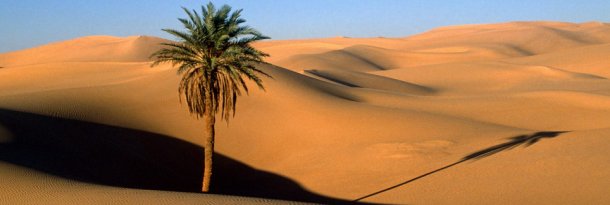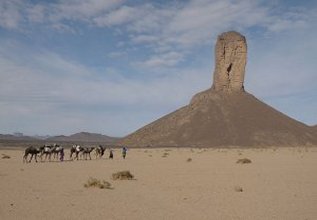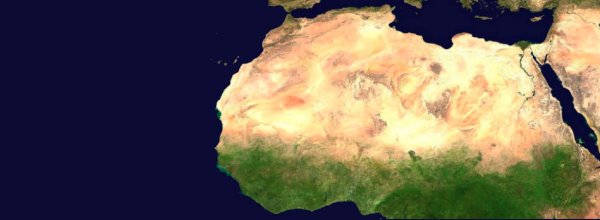|
Sahara Desert Facts |
Sahara Desert Facts |
Sahara Desert Facts | Sahara Desert Facts |

|
Other desert dwellers include addax and dorcas gazelles, which can survive on dew and moisture from plants; desert-adapted reptiles like horned vipers and sand vipers; and various rodents, birds, and insects, all exhibiting nocturnal habits, efficient water conservation, or specialised diets to cope with the scarcity of resources. Human presence in the Sahara dates back tens of thousands of years. Evidence of ancient settlements, lush landscapes, and thriving wildlife are preserved in the form of remarkable rock art across regions like the Tassili n'Ajjer in Algeria and Tibesti in Chad, depicting scenes of large animals like elephants and giraffes, and human activities like hunting and dancing – a stark contrast to today's desertscape. For millennia, the Sahara has been traversed by nomadic and semi-nomadic peoples, most notably the Tuareg, often called the 'Blue People' for their indigo robes, and various Bedouin tribes. Their lives are intimately linked to the rhythms of the desert, relying on knowledge of infrequent oases – fertile pockets of land where underground water sources reach the surface, supporting agriculture and permanent settlements. These oases have historically served as vital stopping points for trans-Saharan trade routes, facilitating the exchange of goods like gold, salt, slaves, and textiles between sub-Saharan Africa and the Mediterranean world, shaping the economic and cultural history of the continent. The Sahara has not always been the arid expanse it is today. Geological and archaeological evidence suggests that it has undergone significant climatic shifts over vast periods. Cycles of aridity and pluvial (wet) periods have characterised its history, largely governed by orbital precession and variations in monsoon systems, a phenomenon sometimes referred to as the 'Sahara Pump' theory. During its last 'Green Sahara' phase, approximately 10,000 to 5,000 years ago, vast lakes and rivers crisscrossed the region, supporting abundant flora and fauna, including hippos and crocodiles. The gradual shift to its current hyper-arid state was a slow process, driven by changes in Earth's tilt and orbit, which altered the intensity and reach of the African monsoon, leading to the desiccation of the land. Beyond its local impact, the Sahara plays a crucial role in global climate systems. Its vastness influences atmospheric circulation, and Saharan dust plumes, carried by trade winds across the Atlantic, fertilise the Amazon rainforest and influence hurricane formation. However, the Sahara faces modern environmental challenges. Desertification, the process by which fertile land becomes desert, is a persistent concern, driven by a combination of climate change and unsustainable land management practices on its fringes. Conversely, the Sahara also holds immense potential. Its unparalleled solar insolation makes it a prime candidate for large-scale solar energy projects, offering a clean, renewable power source that could potentially power entire continents. Furthermore, significant reserves of oil and natural gas are found beneath its ancient sands, particularly in Algeria and Libya, shaping geopolitical landscapes. With growing desertification southwards, the desert, which has a history of expanding and shrinking, is now encroaching on communities in Niger and elsewhere promoting the idea of the Great Green Wall, a man made strip of land some nine miles wide that is to be constructed from Dakar to Eritrea across Africa, to hold back this desertification. The Sahara Desert, with its vastness, extremes, and enigmatic history, continues to captivate and challenge. It is a land of paradoxes: seemingly barren yet teeming with resilient life, historically a barrier yet a conduit for culture and trade, and a powerful symbol of nature's raw, untamed might. Its enduring mystery and the profound adaptations of those who call it home underscore the incredible diversity and tenacity of life on Earth, making the Sahara a truly unique and invaluable natural heritage.
|









